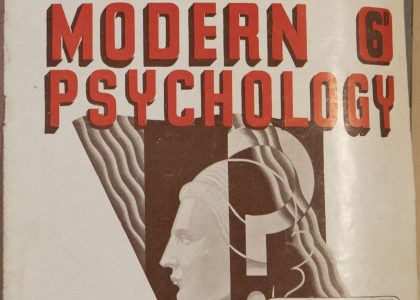As defined by the Parapsychological Association, parapsychology exclusively studies phenomena which fall into three categories: extrasensory perception (ESP), mind-matter interaction, and survival after death. Parapsychologists do not study topics such as astrology, UFOs, cryptids, and witchcraft. Today, most mainstream scientists recognize parapsychology as a pseudoscience.
History
Many people throughout history have claimed to have experienced psychic phenomena. Questions about the reality of human existence and consciousness, advanced by the rise of Spiritualism, led to the development of psychic research in the mid-19th century. The first organization for the study of psychic research, the Society for Psychical Research, was founded in London in 1882. Three years later, in 1885, The American Society for Psychical Research became the first organization for the study of psychic phenomena in the United States. Parapsychology was coined in 1889 by German philosopher Max Dessoir, replacing the term psychical research in the 1930s after J. B. Rhine helped found the study as a branch of psychology.
Interest in parapsychology grew in the early- to mid-19th century as psychic phenomena gained the interests of both researchers and the general public. In 1969, the Parapsychological Association became an affiliate of the American Association for the Advancement of Sciences, formally recognizing parapsychology as a scientific discipline.
Criticism
Today, parapsychology is generally considered a pseudoscience. Critics argue that parapsychology cannot be considered a true science because it fails to follow established scientific principles, as much of parapsychology examines theories that are difficult or impossible to test, cannot be proven false, and do not provide reliable results in repeated inquiries. Furthermore, despite decades of research, there has been no reliable evidence of the existence of psi, the unknown factor said to be behind ESP and psychokinesis, nor has there been sufficient evidence to support the reality of psychic phenomena.
While parapsychology has declined in interest among the mainstream, some members of the scientific community have begun calling for a reconsideration of the discipline. In 2018, psychologist and skeptic Christopher French wrote that:
“[S]cience is a method for approaching the truth, not a body of established facts or a particular set of phenomena. In deciding whether parapsychology is better described as a science or a pseudoscience, we should look at the methods employed by parapsychologists. It would be unfair to judge any discipline only by considering the poorest work done within it (if we did so, psychology would certainly be dismissed as a pseudoscience). Parapsychology at its best—as exemplified by, for example, the articles in the Journal of Parapsychology—appears to meet most if not all of the benchmarks of true science as opposed to pseudoscience. That is so even if paranormal forces do not actually exist.”
French, C. C. (2018). Reflections on pseudoscience and parapsychology: From here to there and (slightly) back again. In A. B. Kaufman & J. C. Kaufman (Eds.), Pseudoscience: The conspiracy against science (pp. 375–391). Boston Review. https://doi.org/10.7551/mitpress/9780262037426.003.0017

